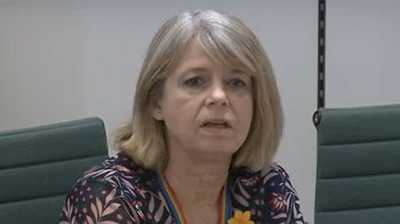
MPs are calling for action to ensure SMEs continue to have access to a wide range of sources of finance, after the Treasury select committee found high street banks shut more than 140,000 accounts held by small businesses last year.
The data was uncovered in the course of the Treasury committee’s current inquiry into whether SMEs have adequate access to financing and whether commercial lending to SMEs should be brought into the regulatory perimeter. It draws on figures from Barclays, HSBC, TSB, Lloyds, Santander, NatWest, Metro and Handelsbanken, with Paragon said to be unable to provide the information.
Only three banks gave ‘risk appetite’ as a reason for bank closures, with 4,214 cases listed. Other reasons included financial crime concerns and lack of information-sharing.
Harriett Baldwin (pictured), chair of the Treasury Committee, said: “One of the most startling pieces of evidence emerging from our inquiry is the readiness of lenders to close business bank accounts with little or no notice.
“The fact that only three lenders included “risk appetite” in their criteria indicates these discussions may not be systematically recorded – leaving questions over whether decisions on the de-banking of certain businesses, based on what banks perceive as a risk, are happening informally.”
Increased regulation
The FCA is currently reviewing the issue of account access, and is also dealing with a super-complaint from the FSB, which has raised a group action to highlight what it says are the “harsh lending practices of banks that excessively demand personal guarantees for business loans”.
The FSB is proposing the FCA undertake work to assess the extent of this practice, and then consider asking the Treasury to expand its regulatory perimeter to help more small businesses affected, typically limited companies where directors provide personal guarantees.
The FSB believes that the FCA should make specific rules for lenders regarding the use of personal guarantees in lending to companies, which it says should “balance the interests of borrowers and lenders appropriately”.
Unintended consequences
However, a recent report cautions there may be potential negative consequences from increased regulation. Credit-checking platform ClearScore and consultancy EY calculate the consumer non-prime lending market has shrunk by 34% since 2019, while loans offered to sub-prime customers with the lowest credit scores declined by 76%.
At the same time, there has been a surge in unregulated credit as traditional lenders left the market, with buy now pay later (BNPL) loans up by 53% since 2021, and evidence that more consumers are resorting to illegal money lenders.
The report suggests part of the reason for this trend lies in the FCA’s clampdown on payday lending which created “negative and binary perceptions” of banks charging higher interest rates for risky credit, and argues a more nuanced approach is needed.
Best practice
The report, ‘Building a non-prime lending market that delivers for UK consumers’, highlights a number of other concerns about regulatory activity.
It points to an imbalance of power between CMCs bringing multiple cases to the Financial Ombudsman Service (FOS), and regulated lenders, who face additional costs including the case fee, regardless of the merit of each claim.
Clearscore says the FSMA 2023 includes a provision that would allow for the Ombudsman to charge case fees to third parties and FOS is now consulting on these changes. It argues: “Once introduced, the Ombudsman should make the necessary changes to its rules and seek approval from the FCA on those rules — allowing the case fee to be charged to CMCs. This will rebalance incentives and encourage CMCs to only take on cases with a real prospect of succeeding.”
Additionally, Clearscore wants clarification from the FCA on how it wants firms to approach pricing for risk in the context of the new Consumer Duty rules on fair value.
The report states: “In FG/22, the FCA stated that firms may price for risk, provided they could demonstrate fair value. However, in their February 2023 letter to CEOs and Directors of Mainstream Consumer Credit Lenders, the FCA suggested that even where a consumer poses a higher risk, charging an unreasonably high rate could be considered unfair. Firms would benefit from greater clarity around what could be considered unreasonable by the FCA.”
The report adds: “In addition, industry bodies could lead in developing and agreeing best practice approaches that set out how the industry applies FCA rules at a time. This could support the Ombudsman when making decisions about complaints concerning events that happened in the past — when regulatory expectations may differ from how they are today.”
For more information find the: Treasury select committee inquiry details here
FSB super-complaint on SME guarantees here
Clearscore and EY report here









